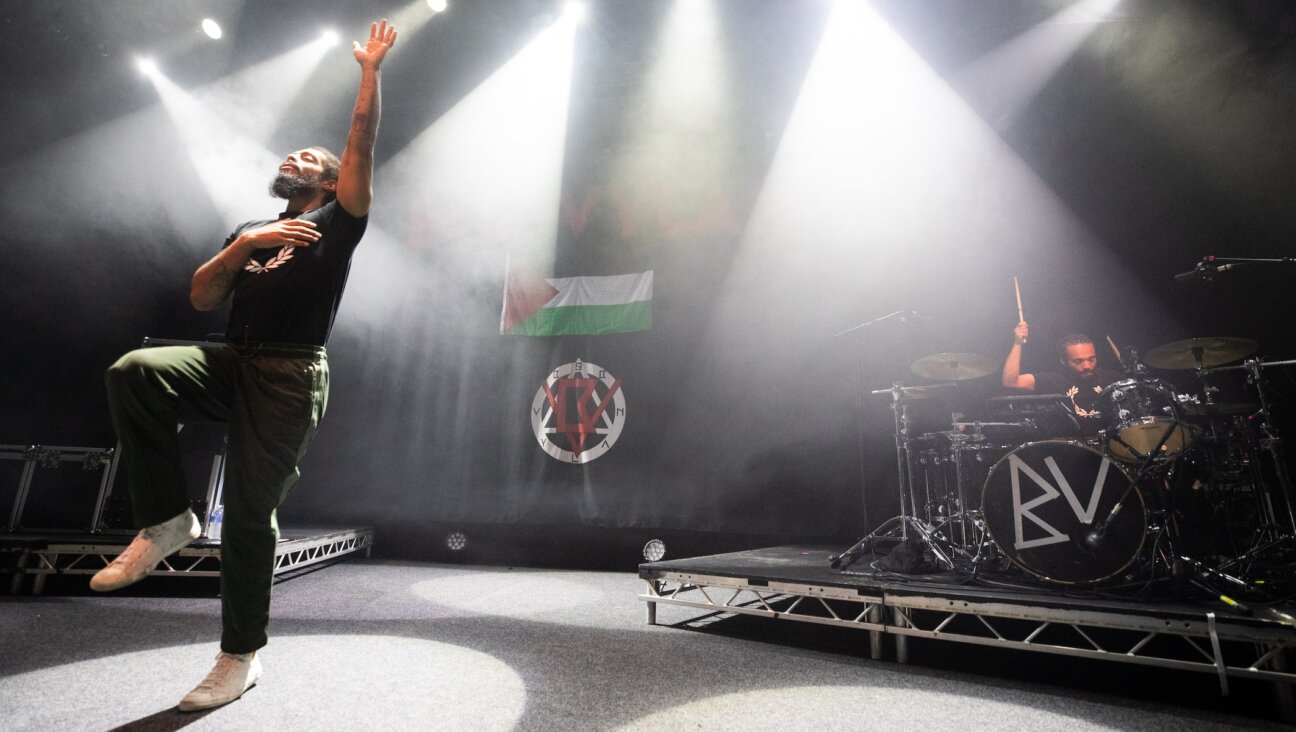Is ‘Knockout’ Urban Game a Threat to Jews — Or Random Acts of Violence?
Police throughout the United States are investigating whether a rash of teen attacks on strangers, many of them Jewish, is a crime trend known as the “knockout game” or a series of random acts of violence.
A savage assault outside a pizza parlor in Philadelphia left a man severely injured, but with all his belongings intact.
Reports of “knockout game” incidents – a shocking new national crime trend to some, and an urban myth to others – have emerged across the country, and officials have been left wondering how to address the problem.
The “knockout game,” as it has been reported, works like this: Teens punch a stranger, hoping to send the victim into unconsciousness with a single blow, generally while being filmed for posting on social media.
No statistics exist on the frequency of such attacks, and it is unclear how they differ from regular street crime that pervades urban life, but media outlets across the country have reported instances of the vicious assaults.
Philadelphia Mayor Michael Nutter, at a press conference on Monday, discussed the numerous random attacks by teens – but he steered clear of calling them a trend.
When a reporter asked a question using the term “knockout game,” Nutter said, “It’s an assault. An assault is an assault is an assault. I’m not going to get into word games.”
After the press conference, a reporter asked Nutter why he would not use the term “knockout game.”
“I’m not giving it any credibility,” Nutter said. “I want to make sure it doesn’t become a trend.”
New York City Police Commissioner Ray Kelly also declined to label a rash of attacks, mostly in Brooklyn, as “knockout game” enactments out of concern for copycat attacks.
Many of the assaults are being investigated as possible hate crimes because they involve Jewish victims, including one at midday Monday when a 72-year-old woman was punched in the back of the head by a black man in his 20s who fled without taking her belongings, police said.
Nutter and Kelly both could have good reason to avoid lumping the crimes together as a sick trend. In the summer of 2012, Philadelphia officials began enforcing a juvenile curfew after the eruption of so-called flash mobs, in which large groups of teens gathered in public places and launched attacks on pedestrians.
“If you are thinking of engaging in this type of behavior,” Nutter said, “don’t do it. Stop.”
Critics of the reporting on the “knockout game” either deny that the trend exists or say it has been hyped by bloggers with an interest in pointing out attacks on whites by African Americans.
Reported instances of the assaults have varying characteristics. In some cases they follow the “one-punch” example. In others, they appear to be gang attacks involving multiple assailants.
Many media reports on this possible trend do not say an attack is the result of the “knockout game,” but simply raise the question of whether an attack may be connected to it.
There are also reported instances of teens acknowledging that the game exists.
In 2011, when teens fatally attacked an elderly Vietnamese immigrant in St. Louis, Missouri, defendants acknowledged a game called Knockout King, where if a victim doesn’t fall to the first punch, other attackers try to finish the job, according to the Riverfront Times.
In Lansing, Michigan, WILX reported last summer on a game called “Point ‘em out, knock ‘em out” in which the assailant tried to use a taser on a victim.
Philadelphia Police Commissioner Charles Ramsey said on Monday that the teens involved in the pizza parlor attack never said they were playing the knockout game. In that incident, the assailants, aged 15 and 17, as well as the victim, age 29, were white.
Ramsey said the police department has no statistics on other instances. Random attacks are recorded by police either as simple assaults, or, if the beating is savage, aggravated assaults, he said.












